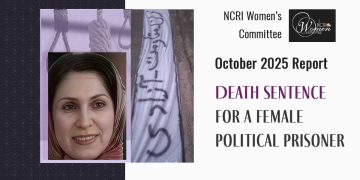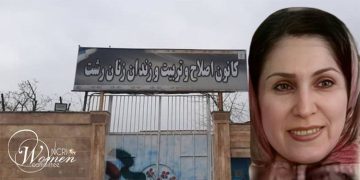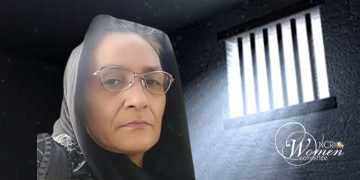On the morning of Sunday, September 14, 2025, the ward housing female political prisoners at Qarchak Prison in Varamin was once again subjected to a violent raid by prison security forces.
Acting on the direct orders of prison director Soghra Khodadadi, dozens of male and female guards stormed the ward known as the “Club” and attempted to forcibly remove prisoners from their rooms and transfer them to the courtyard.
The collective resistance of the female political prisoners prevented the full execution of this order. In retaliation, prison authorities cut off all telephone communications and threatened to cancel family visits.
Forced Transfer and Inhumane Conditions
Following the partial destruction of sections of Evin Prison during the summer of 2025, these women were abruptly transferred to Qarchak Prison. They are now held in a ward that fails to meet even the most basic sanitary or human standards.
Over 60 female political prisoners are crammed into seven small rooms and a narrow corridor; due to a lack of beds, many are forced to sleep on the floor. With only three showers and three toilets available for all detainees, alongside a lack of ventilation, the presence of rodents and insects, and unbearable living conditions, the situation has reached catastrophic levels.
Escalating Pressure and Systematic Retaliation
Contrary to public expectations of either release or return to Evin, Iranian authorities have intensified pressure by keeping these women in the quasi-exile of Qarchak. During the latest raid, Soghra Khodadadi personally threatened the prisoners, warning that any further resistance would result in the loss of what little access they still have to phone calls and personal belongings.
Qarchak Prison: A Symbol of Rights Violations Against Women Prisoners
Qarchak, the largest women’s prison in Iran, not only fails to meet minimum international standards but has also become a stark symbol of systemic rights violations against female political prisoners.
Lack of medical and sanitary facilities, poor-quality food, overcrowding, and the disregard for the principle of separating prisoners based on their charges all pose severe risks to the health and security of inmates. Numerous reports indicate that since Khodadadi’s appointment, repressive measures—including phone restrictions, visitation limits, threats of exile, and violent raids—have sharply escalated.
























